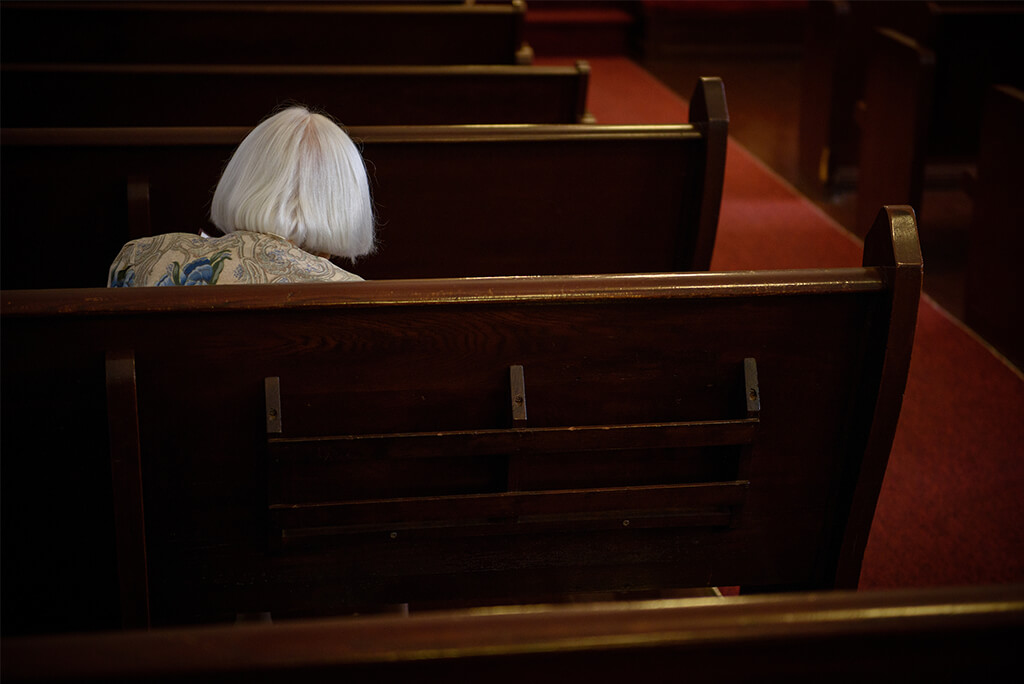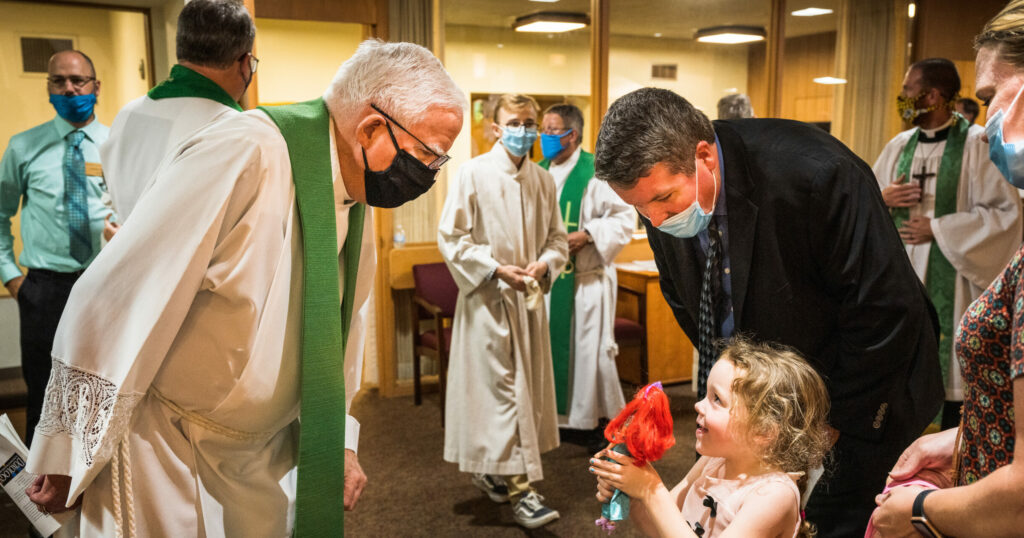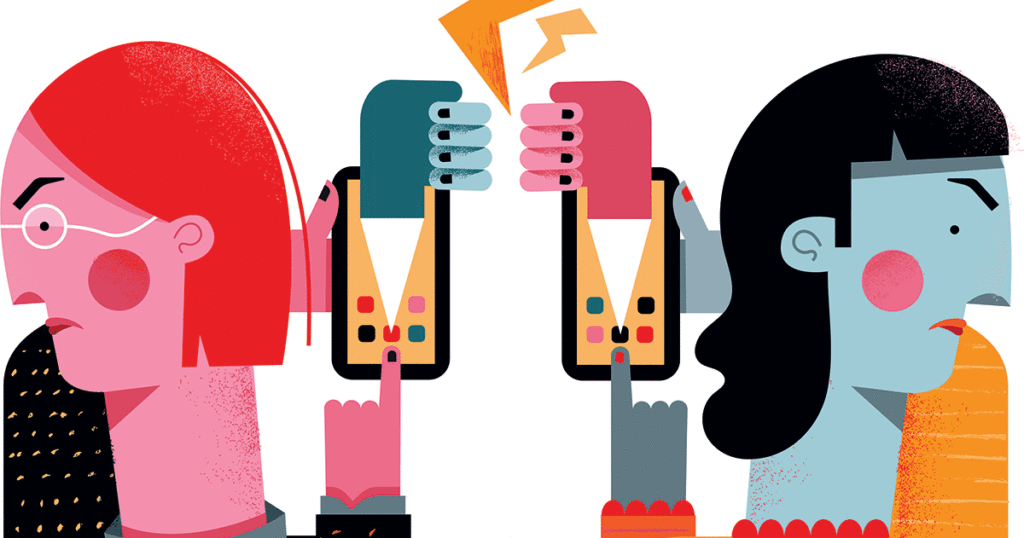From liquid modernity to incarnate community
By Josh Pauling
In the year 2000, the Polish sociologist Zygmunt Bauman coined the term “liquid modernity” to describe the modern condition. In using this apt descriptor, Bauman was encapsulating many aspects of life in the contemporary West, where stable sources of meaning and traditional human categories are being “melted down” and “liquified” at the twin altars of the autonomous self and technological progress. There seems to be nothing solid left, not even the biological body. Add to that the crumbling of institutions — families and churches, universities and civic organizations, even nation states and governments — and everyone is left on their own, adrift in the sea of liquid modernity.
Since Bauman first penned this phrase over two decades ago, the pace of social deconstruction and the proliferation of digital technologies have only accelerated. So much so that I wonder if liquid modernity is turning to vapor, being aerosolized by the digital revolution, which further obscures and fragments things behind pixels, bites and binary code. We all feel it, whether we are digital natives, who can’t remember a time without computers/internet, or digital immigrants, who can remember such a time. We must be honest: the digital revolution shapes us all, whether we have a smartphone or not; whether we have social media or not; whether we work in front of a laptop all day or not (after all, you’re reading this on a screen — ironic, considering the article’s topic, I know).
The technological cocktail of control and convenience that is built into every facet of our daily experience makes for an alluring elixir, feeding into our fallen desire for autonomy. The promises of the internet age have been many: The internet will create a global village! The internet will democratize and ensure access to accurate information! The internet will bring people together! But has it delivered? Does the internet really build better communities and relationships?
Whatever their positive effects might be, it turns out that the internet and social media are contributing factors in the acceleration of political polarization and misinformation and the increase of anxiety and isolation. Psychologists like Jean Twenge and Jonathan Haidt have connected many contemporary social ills to the expansion of smartphones and social media.
The corrosive effects of our digital lifestyles are becoming harder to deny. We are living through a technological experiment being run on humans in real time. As former Google ethicist Tristan Harris explains, we’ve created a “race to the bottom of the brain stem” with algorithmic manipulation and apps designed to leverage the worst of human appetites. Yet even so, it’s hard to resist our glowing glass rectangles. Below I’ll offer some root causes for why digital community fails and how to counteract it — through the incarnational community we share in the Body of Christ.
Digital community aerosolizes the self and the community
Extending Bauman’s concept of liquid modernity, today’s immersive digital habitat aerosolizes or vaporizes the self. The digital medium allows for the construction of a self with many particles of identity that are difficult to hold together, just like aerosol spray that can’t be put back into the canister, or vapor that eludes containment. Online I can be anything I want — and I can be multiple selves. This performative and curated form of identity fosters continual self-discovery in which only self-chosen identities are seen as authentic — always becoming, never being.
Community is similarly aerosolized online into fine particulates that are intangible and impermanent. Innumerable affinity groups and micro-communities promise to meet our need for belonging and connection. Yet because these digital communities can be increasingly subdivided into groups of more and more aerosolized micro-identities, the self we end up constructing becomes as unstable as the communities themselves.
There is a fragility to communities I can enter or leave at will, since they emerge out of mere choice rather than any lasting feature of time-and-space reality. Furthermore, by constantly consuming information about others and producing information about ourselves, we aren’t actually increasing connection or closeness, but are being nudged towards a transactional understanding of relationships. “Community” becomes a production of exchanges with information consumers and producers, all tracked by likes, shares, and more. Philosopher Byung-Chul Han argues that this form of “‘community’ that is so frequently invoked on digital platforms is a commodified form of community.” He warns, “community as a commodity spells the end of community.”
From aerosolized to incarnate
While I am not suggesting that digital technologies have no place in our lives, they cannot be replacements for living life as embodied relational creatures within real families, communities and churches. Digital community will always fall short because it cannot account for our full nature as bodily beings. As much as we try and fill our needs for meaning and relationships through the digital ecosystem, it tends to fragment and aerosolize identity and community.
The intense focus on self-construction and performance through the digital medium provides nothing stable and safe from which one can live with purpose. Instead, it tends towards a gnostic-like disembodiment, a rejection of bodily limits, and an ongoing search for your true self, which all run counter to human flourishing. The identities and communities that individuals carefully construct aren’t strong enough to hold together, which leaves them ultimately alone — as isolated as the bytes and pixels, the 1s and 0s of binary code, that lie behind digital technology.
There is a better way found in the incarnate forms of identity and community that we have been given. At our birth, our name is given, our place is given, our family is given, our community is given. Many of the most basic categories for self-understanding — things like bodies, families, nations, communities — are granted to us, unchosen and embodied. Perhaps it’s time to choose not to choose our identities and communities and instead receive them.
We would do well to attend to relationships in our lives that are unchosen: our family, neighbors, church members, coworkers. Fostering relationships with those who are in our lives not by our choice, but by necessity or circumstance, brings us outside of ourselves and our preferences far more than spending time in personally tailored relationships does.
Our place in the church is also pure gift. We are brought into the Body of Christ not through our own will or choice, but through the great faith-creating mysteries of Christ for us in water, Word, bread and wine. The church is the community par excellence, where we are mystically united to Christ and one another. In the digital age, the church is primed and ready to fill the ache for meaning and community that so many people have. The church is an embodied communion gathered to hear oral proclamation, receive Christ bodily in the Eucharist, and share in life together — a place where people may experience what it means to be fully human again.
We have been planted in a garden. Though it is a garden with thorns and thistles, suffering and evil, it still reverberates with echoes of Eden and that primordial pronouncement of “it was very good.” In this corrupted yet hopeful garden of the world, we still experience hints of our true human telos. And in the garden of the church, those glimpses of our final destiny break into time-and-space reality through the gifts of God in Word and Sacrament, planting us deep in union with Christ and each other. And, greater still, on the garden’s horizon we see shadows of the final eschaton where we will be planted in the restored garden of God, and will find the fullest expression of human identity imaginable — being grafted together with the True Vine in full communion with the Holy Trinity and one another.
Photo: Hassaan Here on Unsplash






RE: “In the digital age, the church is primed and ready to fill the ache for meaning and community that so many people have.”
In my experience, some congregations are characteristically more welcoming and engaging than others.
In more vibrant church communities, it does seem widely appreciated that a fundamental and rewarding aspect of Christian life is seeking out ways to be a blessing to others. In those churches, members line up to greet the newcomer. Then, where love, sincere appreciation and joy are manifest, personal invitations to participate in Christian fellowship and worthwhile community service can be quite appealing.
“By this all people will know that you are my disciples, if you have love for one another” (John 13:35). So, “let us consider how to stir up one another to love and good works” (Heb. 10:24 ESV).
Concerning “digital community,” personal experience has convinced me that videoconferencing can be a valuable tool in supporting one another in the faith. I have been facilitating a small group Bible study virtually for four years. Since the start of the Covid pandemic until now, various constraints have prevented us from meeting in person, but the regular communication by video has enabled personal connections to develop and deepen as we routinely refresh ourselves in the Word and support each other in prayer. And thereby we have been delighted and blessed.